AudioCulture
The noisy library of New Zealand music
Te pātaka korihi o ngā puoro o Aotearoa
Evan Silva
Silva, who has sung on a handful of singles, dozens of jingles and recorded eleven albums since his dramatic Christian conversion in 1973, has been called New Zealand’s soul man. His silky smooth delivery has been likened to Al Green, whose songs he covered in his early club repertoire.
In the mid-60s Evan Silva was the hard man of “get down, funky” New Zealand soul, and the first to admit he was arrogant, often drunk and at times violent. Today he pastors a church at Ōkahu Bay, Ōrākei, fronts his band Silva Service and continues to write and record meaningful, melodic music.
After running Harbour City Church on the North Shore for many years, his move to Ōrākei is like a return to his roots. Silva, of Portuguese, Pacific Island and French descent, was born in Ōrākei, Auckland, in 1947. He was greatly influenced by the vocal capabilities of teenage rock and roll sensation Frankie Lymon and used to sing at family parties, performing publically at the age of 13 when an uncle convinced a surf style band on the North Shore to let him sing three songs.
Silva’s first professional opportunity came three years later during an upholstery apprenticeship. The radio was always blaring over the top of the sound of tacking and hammering and everyone was singing along to the pop songs of the day being played through bad speakers. One of his co-workers, a bass player, encouraged him to try out for his band The Mockers. They were strictly a pop band playing Dave Clark Five type tunes and after one rehearsal, he was asked to join.
Bookings began rolling in for weekend work and Silva was just getting a feel for what a music career might look like when he got into trouble one time too many.
Rough start to gigging
Silva been hanging out with a group of roughs in Mission Bay who often got into fights. He suggests his conquests were mainly guys bigger than himself but when his hot temper came to the notice of the law he was given six months’ periodic detention in Parnell. His weekends were now fully booked. Rather than taking his frustrations out behind a microphone he was mopping floors, polishing brass and sweating behind a shovel. It was a hard lesson but it convinced him more than ever that he wanted a music career.
Silva formed Nobody’s Children, which he describes as “Auckland’s first real hard out soul band.”
After his six months’ penance, Silva formed Nobody’s Children, which he describes as “Auckland’s first real hard out soul band. We had two guitars, bass and drums and were even playing Joe Tex, which hardly anyone had heard of at that time.”
With a repertoire including James Brown, Otis Redding and Wilson Picket’s ‘Ninety Nine An A Half (Won't Do)’, ‘In The Midnight Hour’ and ‘634-5789’ they soon had regular gigs at the Galaxie in downtown Auckland and the Top 20 in Durham Lane.
Despite the pitch perfect vocals, the shy singer mostly kept his back to the crowd or at least remained side-on. Crowds, he said, put him off, and he’d rather get in the groove with the boys in the band.
In 1966 bass player Jack Stradwick from high profile group The Action approached Evan Silva, looking for a singer to replace brother Danny Stradwick who was about to leave. Silva’s dream of being a professional musician had come true. He joined Stradwick on bass, Brian Harris on drums, John Bissett on keyboards and John Kristian on guitar.
The Action had a residency at the Top 20 and were “playing a little bit of pop and just edging around the R&B thing”. They had already recorded a single and put down the first side of a new one, ‘Romeo and Juliet’.
“When I came on board they moved more into soul and Motown and more funky sounds and we recorded ‘I Can’t Make a Friend’ as the B-side.”
Fortified frontman
Silva soon found a way to combat his stage shyness: after a few lemon gins (“the flavour of the year”) he was up for any challenge.
Three more singles were recorded: ‘Never Ever’, ‘Something Fresh’ and Otis Redding’s version of ‘Try A Little Tenderness’ on Eldred Stebbing’s Zodiac label. “Eldred always wanted to do the poppy things so we did something more Motown style on the flipside, which was what we really were about.”
They were resident at the Galaxie nightclub six nights a week for two and a half years. All the singles saw some chart action and their gigs drew full houses. They made several appearances on Pete Sinclair's C'mon TV show and toured heartland New Zealand.
“We were running out of things to do. We were drinking heavily, slowing down on rehearsals and tired of playing the same old stuff.”
The band decided to head to Sydney in early 1968 to try their luck. They locked themselves into the Platterack club for solid rehearsals, learned The Beatles’ 'Sgt Pepper’s Lonely Hearts Club Band', the Fifth Dimension’s ‘Up Up And Away’ and a host of more complex Motown material. “We were very versatile and had great harmonies,” says Silva.
At their farewell gig at the Galaxie they showed off their new image and repertoire. “We had the whole Booker T. thing going, pressed trousers and sky blue dinner jackets and I came on with an afro like Marge Simpson in an orange satin suit, patent leather shoes and a kaftan top.”
The band arrived in Sydney thinking they were going to show the locals they were “hard edged Kiwi boys”. Jaws dropped when they got to Kings Cross and saw whom they would be supporting.
“We became like kids. We thought we were good but when we saw Billy Thorpe and the Aztecs at Whisky A Go Go we said wait until you hear us.” Downstairs at the club was another New Zealand act, Barry Leef and Simple Image, who Silva says were sounding hot.
Wild at Whisky
The Action needn’t have worried. On their first night, the place was full of American G.I.s who loved the Motown sound, and “the place went wild”.
Silva says Jack Stradwick had an amazing bass style. Brett Neilsen on drums was a real groover and on organ, Bisset was doing all the horn parts. “We were doing all the difficult Motown stuff: ‘Bernadette’, ‘Seven Rooms Of Gloom’, which most bands wouldn’t touch and we were just nailing it.”
Management approached them afterwards and they were signed to play at the Hawaiian Eye in Castlereagh St, Sydney, for two years.
The Action took up lodgings in Kings Cross with Sydney's seamy underworld of dope and prostitution all around them.
The Action took up lodgings in Kings Cross with Sydney's seamy underworld of dope and prostitution all around them. There were parties every night, and drugs were a staple diet. The La De Da’s, another New Zealand band who were regulars on the Sydney circuit, stayed nearby.
Although they were approached to appear on top rated Australian TV show Bandstand, Silva says the band soon became arrogant, turning down many opportunities for television and other interviews that might have boosted their career by offering lame excuses, like “sorry our suits are at the dry cleaners”.
The Action were playing seven nights a week and had built up such a rapport with their audience that they even let some people get up and sing with the band. “You’d be in the middle of a set and some guy would yell out, can I sing ‘My Girl’. One night a guy came up on stage and started to preach about Jesus Christ. I got so angry I grabbed him by the scruff of the neck and threw him off the stage.”
Soon the novelty seemed to fade and band members were squabbling. “After a while we stopped rehearsing. We just got sick of each other with all the alcohol and drugs and little hate sessions.” The band had swapped drummers from Bryan Harris to Brett Neilsen from The La De Da’s. When Brett headed home Andy Anderson joined from Southern Comfort, who had been playing the nearby Cheetah Room.
High times
Silva recalls the band would be out the back having a staff meal at the Hawaiian Eye and if Anderson hadn’t finished he’d take what was left with him and sit his plate near his tom tom drum so he could pick away at it in between songs. “I would often look over and see gravy and peas vibrating off the plate onto the floor.”
On another occasion Anderson turned up late for a gig without his drumsticks. “Just before the set he raced off down the road to the grounds of the Sydney court house, climbed a tree and came back with two thin green branches. He used these to pound his drums for the rest of the night with the sap still dribbling and spraying into the audience and band members.”
Andy Anderson admits he was “pretty loose back then”. He recalls the green branches for drumsticks incident but concedes to Silva’s memory on the meals on drums story.
“I do remember forgetting to play during the Otis Redding version of ‘Treat Her Right’. I don't know how those soldiers survived smoking that stuff in the jungles. I ended up staring at my sticks waving two inches from my face. Jack Stradwick had to call out, ‘Andy!’… Uh yea?... ‘Play’.”
Next, guitarist John Kristian and bass player Jack Stradwick headed back to New Zealand. The unit quickly recruited fellow New Zealanders Gus Fenwick on bass and Mike Wilson on guitar from The Layabouts and The Apple.
One of their achievements was playing on the soundtrack and appearing in the Australian movie The Vision. Within a year of the third line-up change, it was all over for The Action.
Silva, Fenwick and Wilson put together a new unit playing gigs on Sydney’s North Shore then Silva found another outlet for his creative energies, Melbourne-based Compulsion.
Compulsion was the convergence of the remaining members of Wellington’s brassy Sounds Unlimited, who on returning from the UK in 1967 fed musicians into The Quincy Conserve and Joyful Crye, which featured Hendrix-inspired guitarist Reno Tehei, bass player Ben Kaika and Paddy Beech on drums.
Joyful Crye, after gaining an underground following during a short tour of New Zealand, headed to Melbourne where they had a loyal following. When Evan Silva joined on vocals they were playing Hendrix and Joe Cocker covers and their music appeared in the TV soap opera Bell Bird.
Truth be known, the hedonistic lifestyle of the players was such that Silva barely remembers recording those sessions.
Compulsive behaviour
Out of the ashes of Compulsion, Silva and Reno Tehei formed another short-lived unit known as Total Abstainers, who were asked to become resident band for the rock musical Hair.
When that didn’t eventuate Tehei joined the remnant of another 1960s New Zealand band, The Castaways. Silva hooked up with his old friend Jack Stradwick in Hamul, playing extended progressive blues-rock songs.
They were backed by a wealthy businessman, played in Melbourne for a time and then took a six-month residency at the Condor Room in Sydney.
Evan Silva returned to New Zealand in late 1969 but found it difficult to fit in or find work. Everything had changed and he was pretty spaced out after those drug and drink fuelled years in Sydney and Melbourne. He and guitarist Mike Wilson formed The Truth with Tony Walton and Dave Wright on bass, playing the Mon Desir and then a six-month residency at the Montmartre in 1971. Then came Kindred Spirit, who played a club in Newmarket fronted by Silva and Kaye Wolfgramm with Tony Walton, Peter Cuddihy on bass, Helen Lee on horns and Steve Wilson on guitar.
That band evolved and took on a residency at John Tabla’s Do Re Mi club under the Civic Theatre doing big funky brassy tunes including covers from Sly and the Family Stone.
Losing control
Soon that old frustration and restlessness reappeared. “I thought I was so cool I could turn up halfway through a set with a bottle of whiskey in my hand and just get up and sing what I wanted, when I wanted.”
Silva admits something serious had started to happen after all the acid he had taken in Australia.
Silva admits something serious had started to happen after all the acid he had taken in Australia. He began singing “ridiculous words in the songs and I started to abuse people”. He quit his own band but not performing didn’t come easy. He’d been constantly on stage since the age of 18 and couldn’t settle. So he went to the local bottle store one night, tanked up and went back to the Do Re Mi.
“They asked me to come up and jam with them but I didn’t want to. However, when I looked around that packed room I saw something that bothered me.”
As he was about to leave, he took a good look at the people on the packed dance floor and sitting about the club and began to wonder whether he had contributed to this dark atmosphere. “It wasn’t just the absence of light, it was sleazy and gluey and I saw couples having it off in the corner, I saw the looks on people’s faces, and many of them appeared really depressed. It was like I was having a breakdown or something.”
Over the next 12 months he and his wife Carol had a series of encounter sessions and conversations that got them thinking about spirituality. “One night lying in bed in Remuera with the lights out Carol asked me what I thought about this Jesus stuff. I didn’t know. She said we should pray, so we did.”
He says it wasn’t anything religious but something that came from the heart. “God if you are out there then show us and we’ll come to you.” He says the room immediately filled, “… with this amazing atmosphere, we both went ‘wow’ and then grooved off to sleep.” He was awoken at 2am and saw the shape of a person standing beside him. “He had his hand on my chest and when I went to grab it the figure simply moved away and out the door. My whole life was changed. It was like the power of God.”
From 1973 things snowballed. “I found myself talking to people about what had happened, then I’m preaching and people are being healed.”
Christian comeback
Evan Silva had found a new vocation, studying to become a Christian minister and eventually pastoring his own church. His passion for music was restored and soon he was writing, singing, performing and recording again. His old mate from The Action, Jack Stradwick, after his time as a founding member of Tommy Adderley’s Headband, had a similar Christian encounter. They were soon working together again making crossover music that was more aligned to their soul and Motown style roots.
By this time Silva was well established as a session singer for TV and radio jingles that included McDonald's, KFC and Woolworths with former Underdogs singer Murray Grindlay. “It was a real challenge to get things down tight and right.” He formed soul band ReAction, which played corporate functions; venues like Java Jive and The Corner Bar; Christmas in the Park; fronted the Galaxie nightclub reunion and kicked off the book launch for Roger Watkins' Hostage to the Beat at The Foundry in Auckland’s Nelson Street.
Evan Silva recorded ‘Ain’t No Two Ways About It’ early in 1997 with Jack Stradwick on bass. It was nominated for a NZ Music Award Gospel award. ZB talk back host Leighton Smith concluded Evan must be African American. Amazed to discover he was a New Zealander, Smith ran a radio competition to “guess the artist”. Phil Collins, Steve Wonder. Eric Clapton?
When Evan called to thank Smith for the daily airplay of 'Love Sweet Love' he went on-air, spoke about his life and was asked to give a full account of his conversion to Christianity.
Leighton included the Evan Silva song ‘Love Sweet Love’ on a compilation album of his favourite tracks, Makin’ Whoopee, released by Warner Music, alongside tracks by Dr John, Ray Charles, Little River Band and others. It was certified platinum.
The live follow-up album Gotta Get Up was nominated for the 2001 NZ Music Awards in the gospel section and the song ‘Send Me An Angel’ was covered by an artist in Denmark. Auckland based jazz singer Caitlin Smith reviewed the album for NZ Musician magazine in its Feb/ March 2001 edition, calling Evan “NZ’s reformed bad boy – our very own Al Green.” She praised the album: “The production is slick and warm … this album is a testament to Evan’s singing strength.”
In 2004 Evan Silva returned to Stebbing studios with 24 handpicked musicians to record Out of the Shadows on the Zodiac label, which included a duet with Caitlin Smith, and in 2007 he recorded the follow-up Kiss of Grace. Since then he’s released Chance and Time, an album of Christmas songs. His biography Under the Afro was released in 2013.
As his former drummer and now well-known actor Andy Anderson said in September 2015, “Evan is a fine, fine soul singer. I’m impressed with his new songs. He’s getting better with age.”
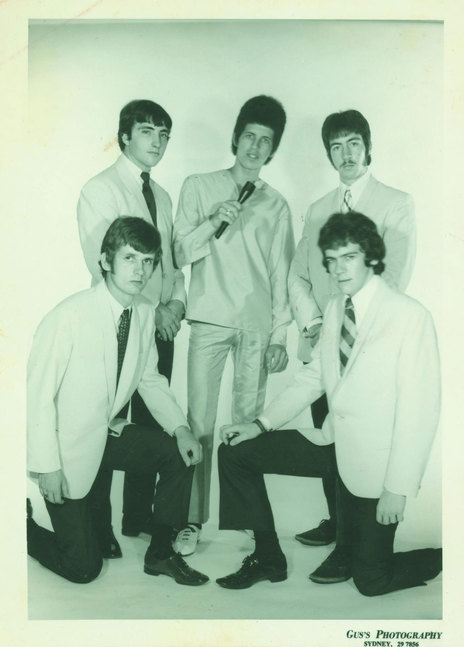
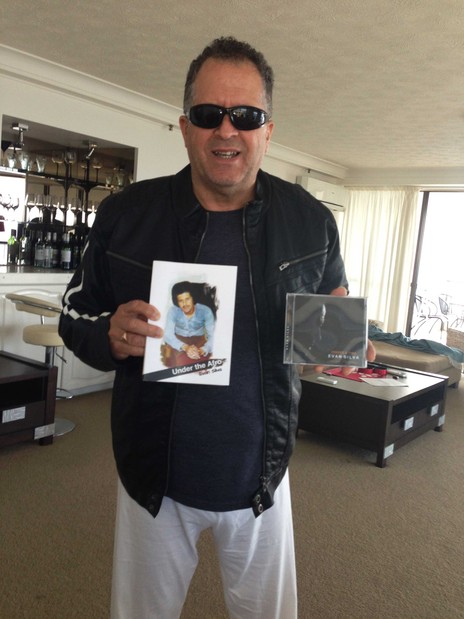
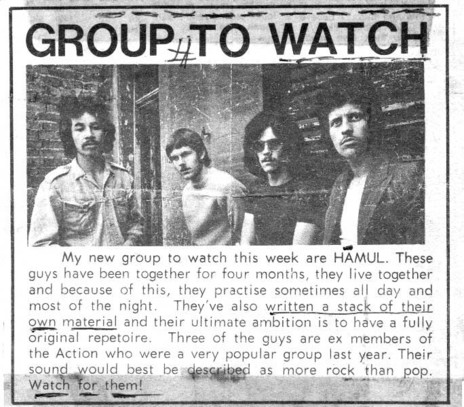
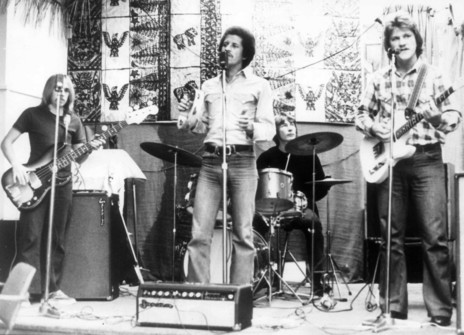
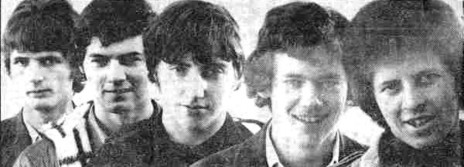
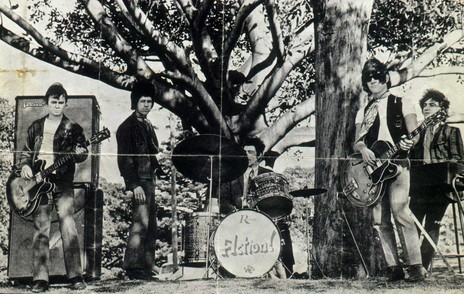
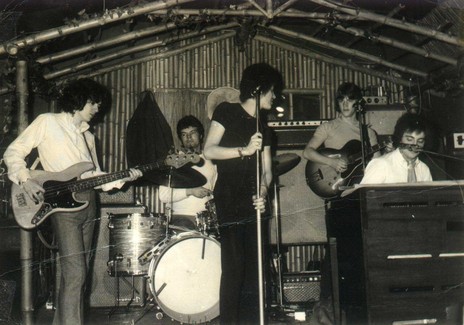
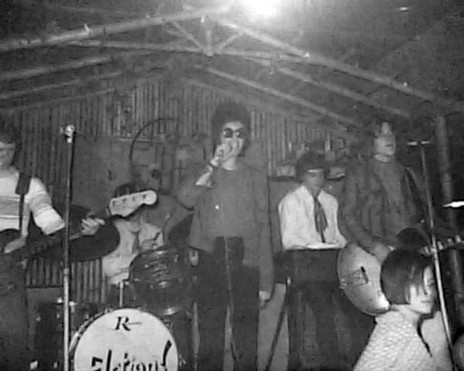
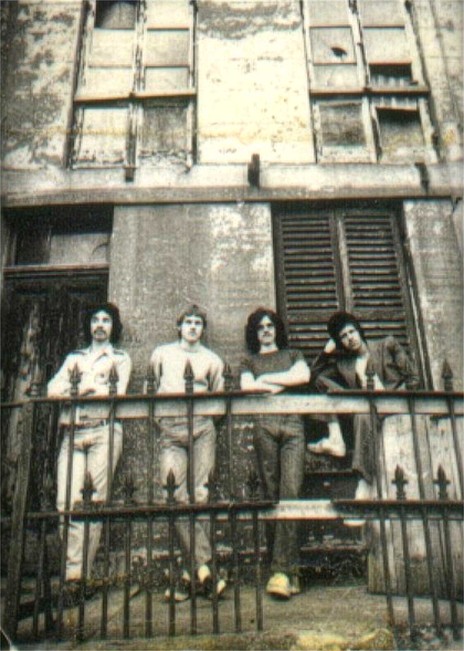
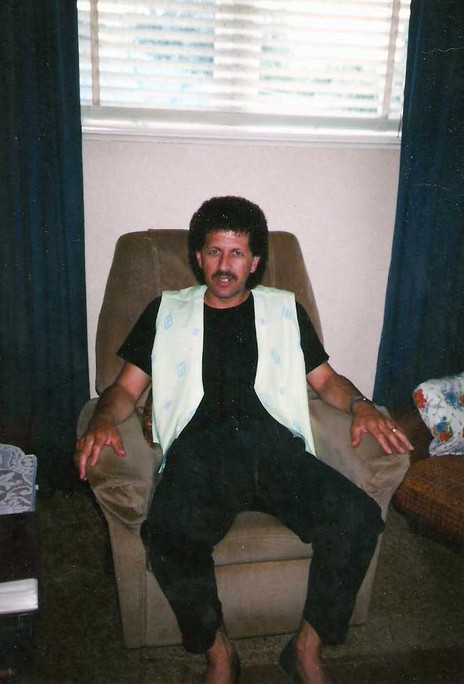
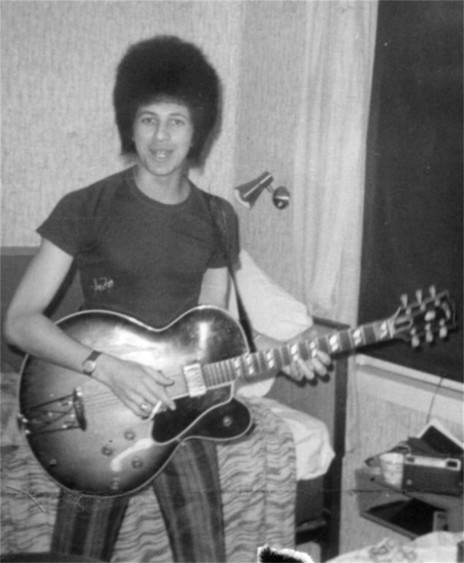
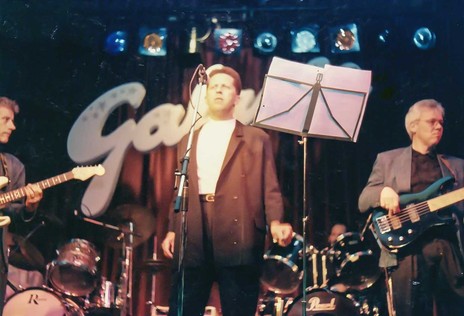
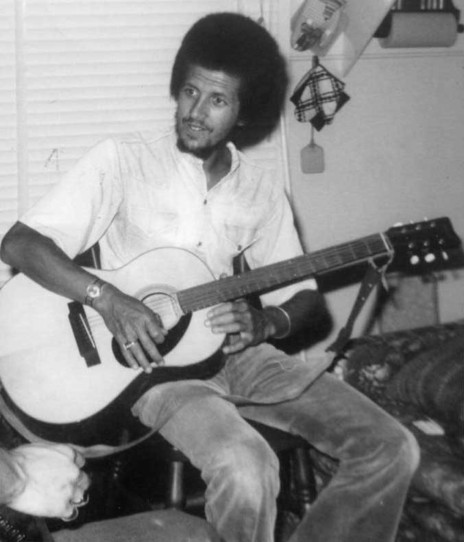
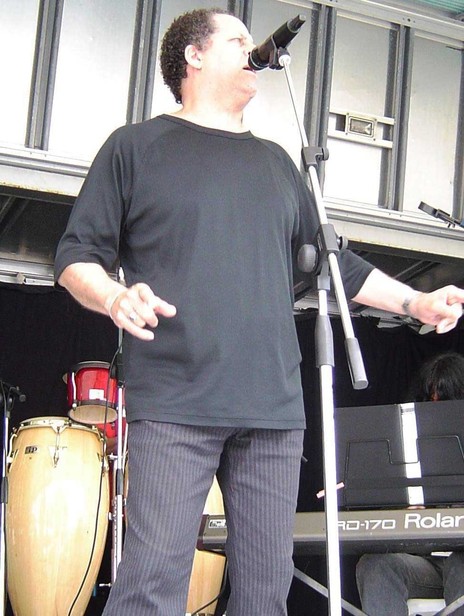
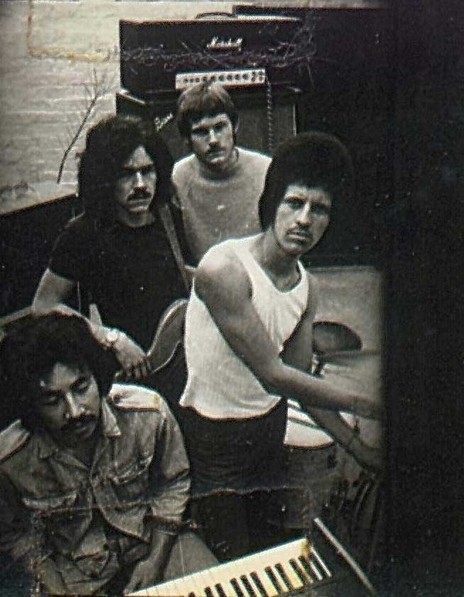
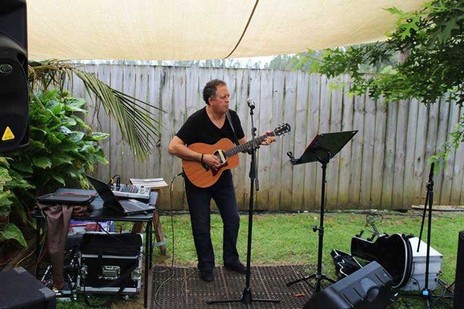
Visit our sister site
NZ On ScreenMade with funding from
NZ On Air




